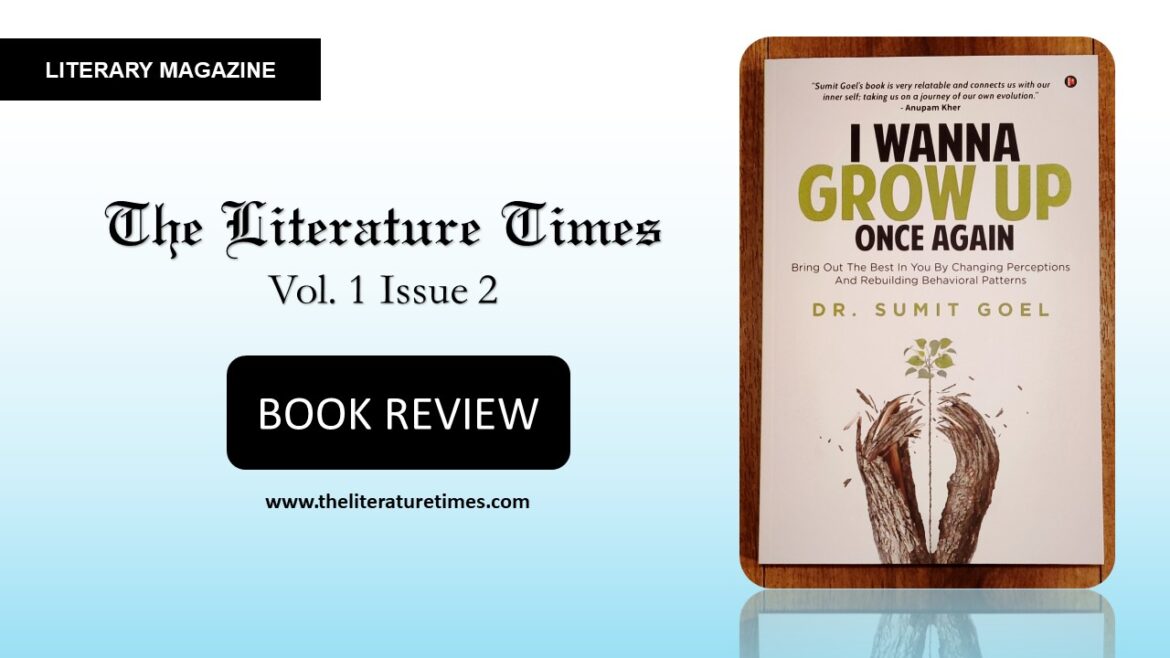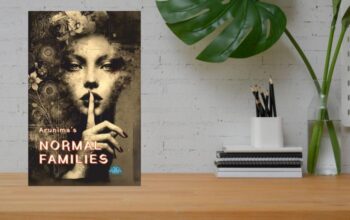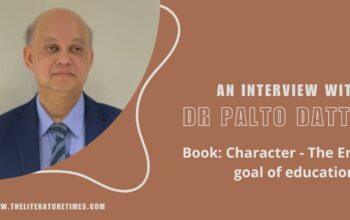“I Wanna Grow Up Once Again” by Dr. Sumit Goel is a new age non-fiction for making individuals put their best foot forward. It is based on the scientific study expressed through detailed analysis about the manner of achieving inner peace. The book opens with a motivational prologue by Anupam Kher which states: “Our perceptions define us.” This is a profound saying as it mentions that individual importance is garnered not by the opinions of others but by the opinions that one holds of oneself. This is highlighted in the idea that the thought process guides the action and it is through action that man is defined. The entire book revolves around the acknowledgment that life is unpredictable and does not go as per plan at all times. Yet, man wishes to make the most of mortal life as long as he has the ability to do so.
The major idea behind the book is relatable and the connects the reader with the present and the inner self. Reading this book is like enjoying a lot of moments filled with self -realization. The key idea is to enable the reader to understand his own self. This has a lot to do with understanding the pattern of behavior that one follows and to decipher why one acts in a certain way in a certain situation. Dr. Goel talks to the reader like he is explaining to a young mind curious about the mysteries of the world and life. The book acknowledges the fear and apprehension that is deep seated in the minds of those who do not venture outside their comfort zone as they expect nothing but failure. This is the best thing about the book, it does not preach but it guides, it directs and it helps. The entire book is interspersed with valuable quotes and sayings worth remembering. Another aspect of the book that is really interesting is its intention to create awareness among people regarding the pattern of thoughts and the way to remain self-motivated. The poem All Alone aptly summarises this feeling of being lost in the middle of nowhere and trying hard to grasp the ways of the world. To a great extent, the book eases this task by making the reader acquainted with the way a human being acquires knowledge of the world.
The language is simple with very few technical terms used throughout the book. The ease with which new and unique concepts are relayed by the author is commendable. There is an overall balance between the information that is provided and the idea that is conveyed. This does not make the reading experience as over whelming for the reader. The book is deeply rooted in child psychology and provides a good view into the mind of the child and the child within every grown up. Since a lot of issues relate to trauma based in childhood, the book puts emphasis on this phase of life and then looks at the adolescent and adult years. It is all about probing the patterns to assess one self and keep oneself in check in order to enjoy a good mental health. Additionally, there are some anomalies that the author warns about specially about not generalising or making sweeping statements and about maintaining the humane side to everyone as anybody can be a victim of mental health issues at any point of time in their life. In this way, the book does not discriminate saying that people who follow a certain lifestyle is more prone to feeling loneliness and anxiety or depression. However, the book is slightly lengthy and the topic of the book is such that it calls for reading with a lot of attention. Regardless of that, the book is an important piece of work in the ongoing discourse about raising awareness about mental health.
The book begins with the very beginning when a child is in the mother’s womb to his birth and how he starts to get an understanding of the difference between inner and outer world. This is followed by month wise development till the child turns a year old. The parent child relationship, its importance and the role of parents in the lives of children is noted in detail. The idea is to encourage communicative roles on behalf of the parents from an early age as the child is yet to learn to speak. This is based on the notion of trust between the parents and the child. Another important aspect of the book is perceptions as mentioned earlier. This begins with the way a person defines himself to himself that is reflected in the world around him. The chapter on Psych-Alone syndrome is very interesting. This is contrasted to the Home Alone syndrome. On the whole the book is highly engaging and informative. The reader is going to go home with a lot of new ideas and with a new lens to look at life.
Reviewed by: Tasnima Yasmin, The Literature Times


